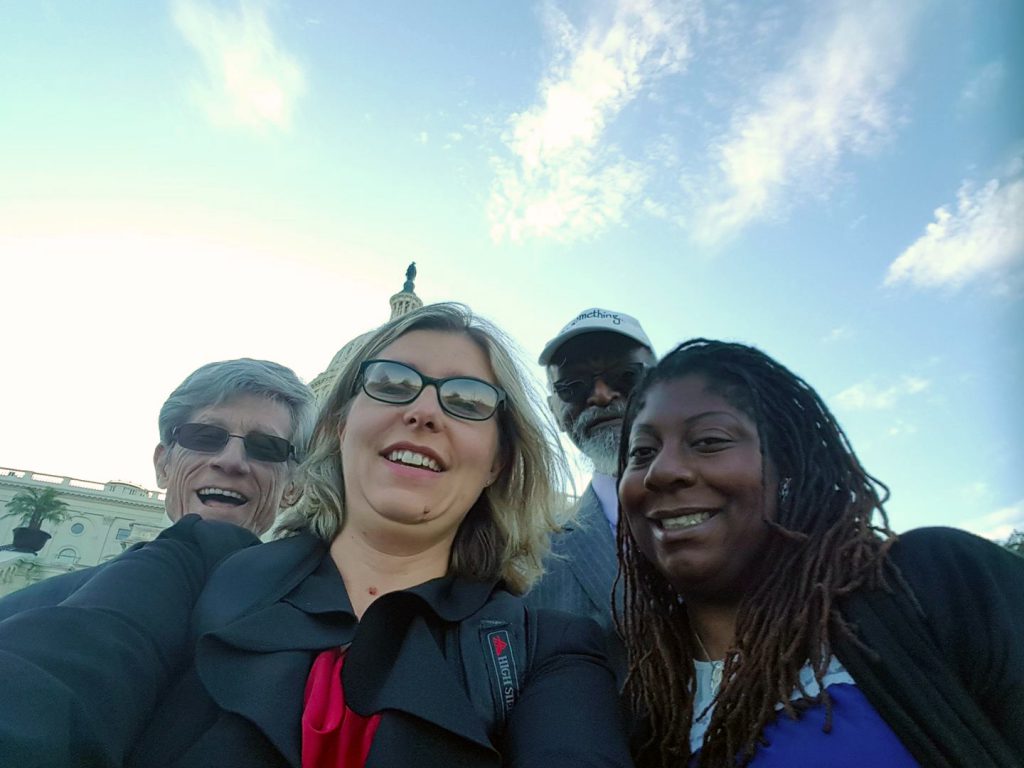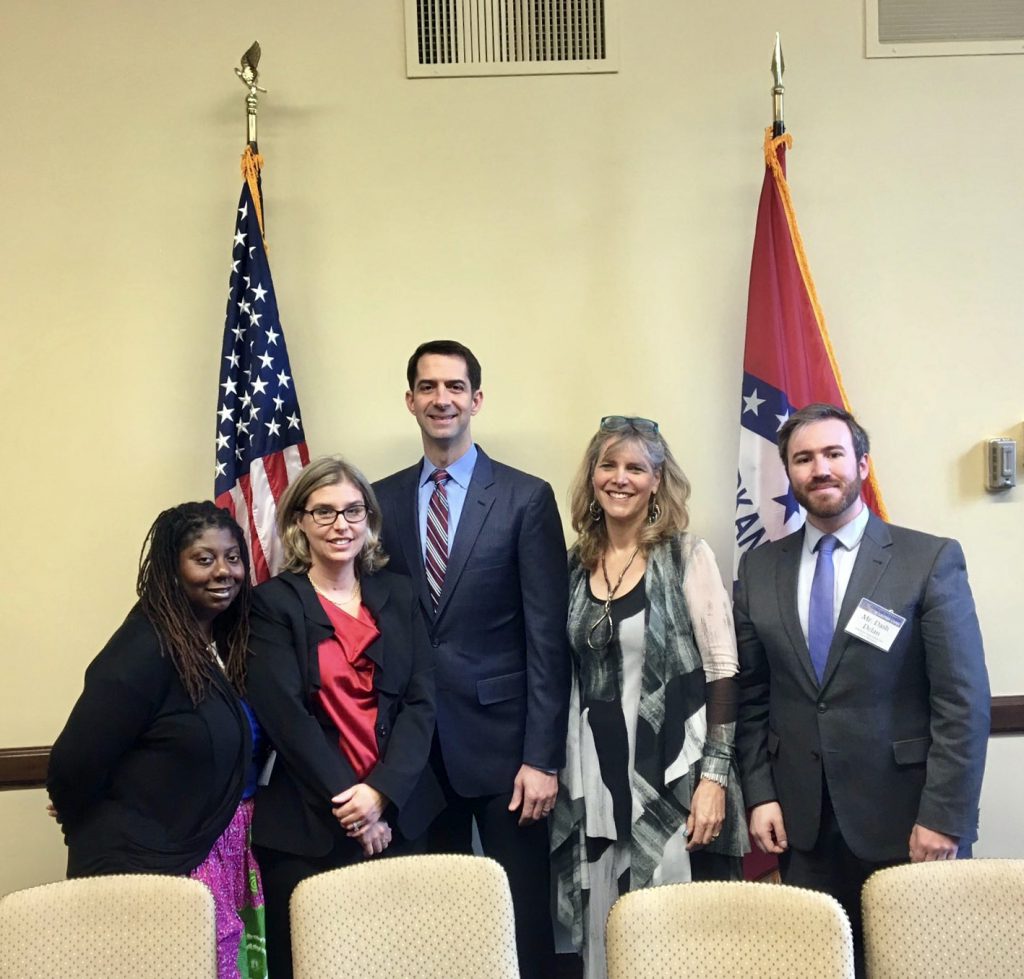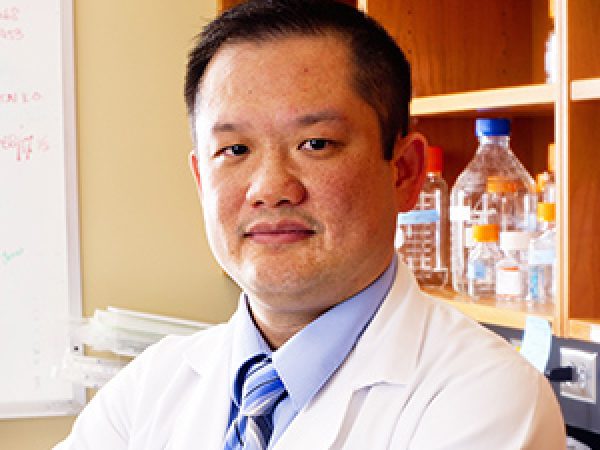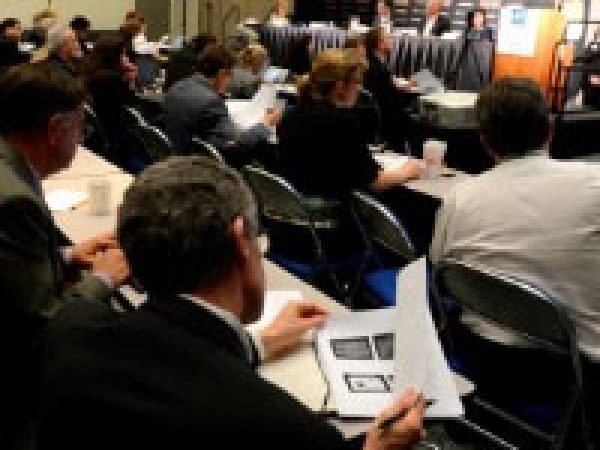Scientist↔Survivor Program Participants Spend a Memorable Day on Capitol Hill
May is National Cancer Research Month, and for the past 10 years, leaders and members from the American Association for Cancer Research (AACR), the Association of American Cancer Institutes (AACI), and the American Society of Clinical Oncology (ASCO) have converged on Capitol Hill during this month to share how cancer research is saving lives and transforming patient care.
This year, as the U.S. Senate was getting ready to vote on a government spending bill that included a $2 billion increase for the National Institutes of Health (NIH) in fiscal year 2017, cancer researchers, physicians, survivors, patient advocates, and cancer center directors were making their way through the halls of Congressional office buildings to thank members for their support and urge them to keep the momentum going next year. With the White House now proposing deep cuts of nearly 22 percent to the NIH budget in fiscal year 2018, it is more important than ever that Congress continues to make medical research a national priority.
Included among those were members of the AACR Scientist↔Survivor Program (SSP), a program launched in 1999 to foster mutually beneficial and enduring partnerships among the leaders of the scientific and cancer survivor and patient advocacy communities through the exchange of information on key aspects of cancer research, survivorship, advocacy, and public policy.

From left, William (Bill) Rosvold, Aime T. Franco, and Gerald Green join Karen Russell, who leads the AACR’s Scientist↔Survivor Program. They visited Capitol Hill this month to discuss the importance of continued funding for cancer research.
“This Hill Day was particularly meaningful attending as a part of the Scientist↔Survivor Program and demonstrating a unified partnership between multiple groups with the common goal of improving patient outcomes and curing cancer,” said Aime T. Franco, PhD, an assistant professor in the Department of Physiology and Biophysics at the University of Arkansas for Medical Sciences. “The alliance of the AACR, ASCO, and AACI for this event demonstrates the effective cooperation of patients, caregivers, physicians, and researchers. It is critical that we are able to demonstrate our unity in the battle against cancer when advocating for funding and support for research.”
Gerald Green, a mechanical engineer, three-time cancer survivor, and SSP advocate from California, shared his survivorship journey with members of Congress and their staffs. He was first diagnosed with tongue cancer in 1995, then with neck cancer in 1997 and prostate cancer in 2008.
“When I was diagnosed with tongue cancer, my son was a year old, and the first milestone that I wanted to reach was being able to see him graduate kindergarten,” Green told staffers, adding that his son has now graduated high school. “Through it all, Monica, my wife and my north star, supported me through cancer’s uncertainties.”
William (Bill) Rosvold, a pancreatic cancer survivor from New York who serves as the Advocacy Chair for PanCAN NYC, was part of an eight-person delegation from New York that included physicians and researchers from top cancer institutions, such as Memorial Sloan Kettering and Columbia University.
“It was good to speak out, and better to be heard,” said Rosvold. “We met with senior health aides for two senators and six representatives. Though in the moment you never know about the long-term impact of these meetings, I think we were heard. In particular, I think we have a friend in Senator Chuck Schumer and in Representative Peter King.”
The day before Hill Day, the House of Representatives had approved the 2017 omnibus appropriations bill by a vote of 309-118. On Hill Day, the Senate approved the bill by a 79-18 vote. While the SSP participants celebrated the increase in NIH funding that was included in the bill, they also recognized the work left to be done.
“Everyone is touched by cancer, whether through their own diagnosis or the diagnosis of a loved one, yet we are still fighting to make research a national funding priority,” said Franco, who shared her story with the AACR in a previous blog post.
“I am honored to have the opportunity to represent cancer patients, researchers, and clinicians and to work collaboratively to raise awareness about the importance of cancer research and sustained, predictable funding,” she added. “But every time I’m in D.C., I do secretly hope that this will be the last trip that I have to make, because I’m hopeful for a future without cancer where we will no longer need to make it a national priority.”

Representatives of the AACR’s Scientist↔Survivor Program met with U.S. Senator Tom Cotton (R-Arkansas) to discuss funding for medical research.



